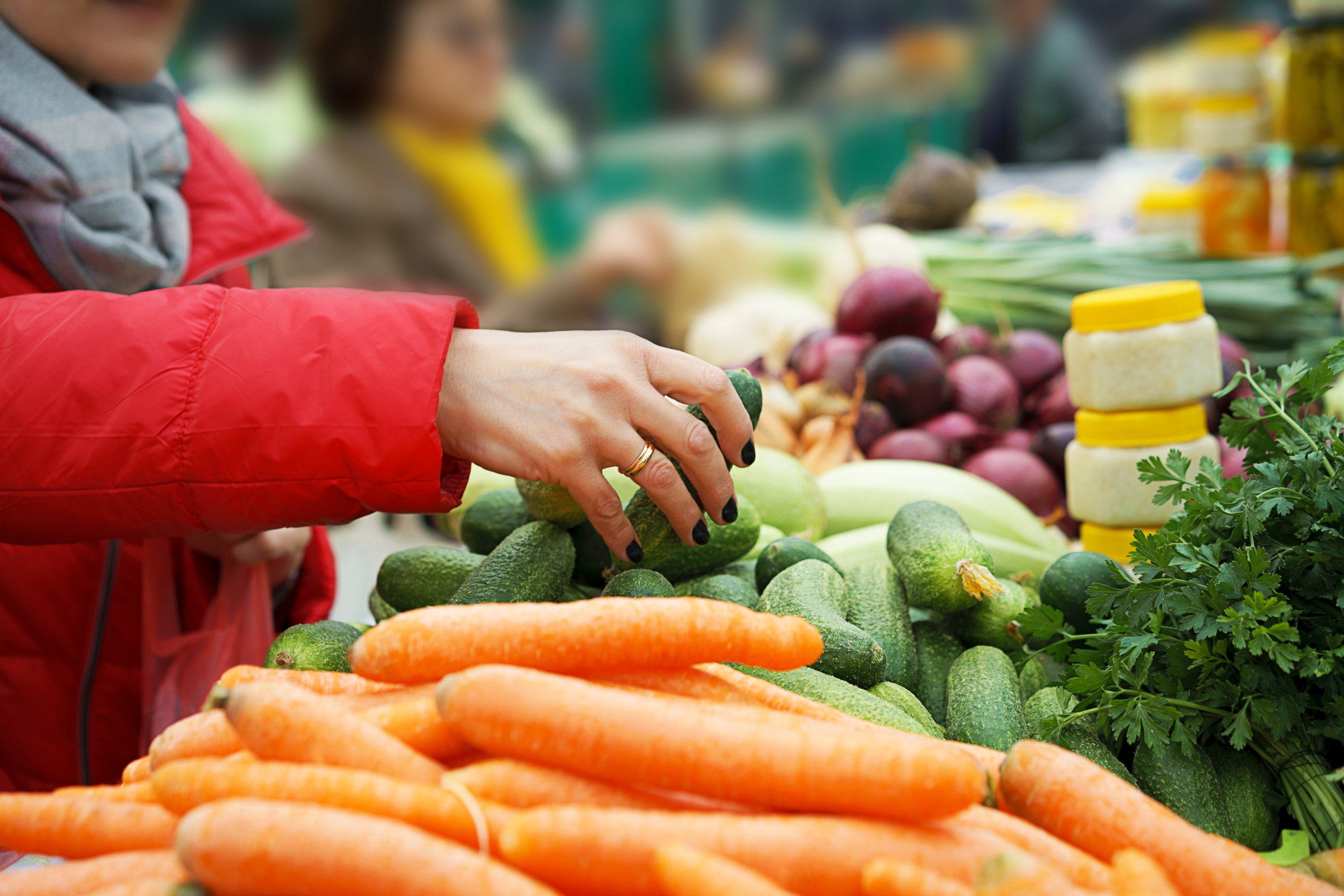15804Views 0Comments

Where to Buy Local and Fresh Foods Around You
People everywhere are realizing the importance of raising the standards for what they put into their bodies. When it comes to nutrition, that means sourcing local and fresh foods that eliminate the need for preservatives. If you are on the hunt for locally produced foods, read on as we have some ideas for where you can find the goods!
Fresh Vegetables
The best place to start looking for freshly picked vegetables is at your local farmers’ market. Farmers’ markets are great places to find locally grown produce, meat, eggs, and more. You can also find locally made goods like honey, jams, and baked goods. These markets are chock-full of excitement, refreshing the local offerings as the seasons change. Not only will you find what you need to nourish your body, but there is also plenty of nourishment to be had for the soul. Your local chamber of commerce will have information about farmers’ markets in your area.
Farm Stands
If you are looking for a more direct connection to the source, farm stands are the way to go! Farm stands are typically run by the farmer themselves and sell produce that is often picked that very day. This is as fresh as it gets, short of plucking it off the vine yourself! You can find farm stands all around the country, so keep an eye out when you are driving around. The offerings at farm stands are not typically as broad as a marketplace, as you will be limited to whatever that particular farm produces. However, you won’t even notice the limitations once you do discover what delicious treats they have to offer.
Meat Markets
If you are a meat lover, connecting with a local fresh meat market is a great way to get the highest quality products. When you buy from a local butcher, you can be sure that the animals were raised in humane conditions and that the meat is fresh. Local butchers, like Fresh Meat Shopping Market, will typically have a variety of cuts available and are more capable of handling special requests, so you are sure to find what you’re looking for. You can usually find other products as well, such as beef tallow or lard, which are used for cooking.
Bakeries
For all you carb-lovers out there, hitting up the local bakery is a great way to get your hands on some fresh goods. Local bakeries typically use locally sourced ingredients, so you can rest assured that you’re getting the freshest ingredients at the same time you are supporting your local economy. Plus, who doesn’t love the smell of fresh-baked bread? If you are ever unsure of the ingredients, simply ask an employee who can explain to you what each treat contains.
Organic Farms
Almost every produce section in North America’s grocery stores has an organic section. It’s where consumers can purchase fruits and vegetables that have been grown in a manner that complies with the guidelines for organic certification by the U.S. Department of Agriculture. Organic products are often more expensive than regular products, so why should the average consumer consider buying them? Besides the many health benefits of eating organic foods, organic farming is also better for our planet. Here is why:
- Reduces Use of Synthetic Chemicals: Organic farming reduces our exposure to synthetic chemicals because organic farmers don’t use synthetic pesticides. This helps to prevent soil and water contamination. But that doesn’t mean that organic farmers don’t use any pesticides at all. In fact, many organic and non-organic farmers use some of the same pesticides that might surprise you. The difference is that organic farmers rely solely on non-synthetic pesticides like natural chemicals and bacteria while non-organic farmers may also use synthetic chemicals. Additionally, organic farmers implement IPM or Integrated Pest Management, a method of encouraging a pest’s natural enemies to do the job for them.
- Better for the Soil: Fertilizer is also an important part of the equation when it comes to smart environmental farming practices. To help encourage healthy soil and growth, organic farmers use organic fertilizer for farming their crops, things like manure, bone meal, dry pelleted fertilizer, and compost. The alternative is inorganic fertilizers like ammonium sulfate or ammonium phosphate. While these ingredients also come from naturally occurring minerals, the problem is that they aren’t as nutrient-rich. The nutrients they do have are released quickly and lost through the soil quickly. Constant reapplication is necessary. Organic fertilizers contain more plant nutrients. While these nutrients are released more slowly because of the time it takes for bacteria and fungi to break them down, this process reduces soil crusting, allowing water to better penetrate the area. It also encourages healthier microbe growth.
- Reduces Carbon Emissions: Another way that organic farming helps preserve our planet’s environment is that it reduces carbon emissions, the kind of emissions that are currently causing large levels of carbon dioxide buildup in our atmosphere. In fact, organic farming uses one-third less fossil fuel energy than conventional farming methods. One reason for this is the fertilization process, as mentioned before. Inorganic fertilizer products decay more rapidly than organic ones, releasing carbon into the air. Organic fertilizers, on the other hand, decay much more slowly and therefore put the carbon back into the soil, reducing carbon emissions into the atmosphere.
These are just a few ideas for where you can source local and fresh foods. When you make an effort to buy from these types of vendors, you’re not only getting the highest quality products, but you are also supporting your local community. Everybody wins!




